“Hey,” said Cheryl, taking my hand, “whadaya say you come over to my house and we make chocolate shakes like we used to?”
I put my normal shirt back on and reluctantly said, “OK.”
She put her arms around my neck and kissed me. “Things’ll be OK,” she said. I wanted to believe it, so I kissed her again. Then, with my arm around her shoulder, we went off to her house.
Used to be, drinking a chocolate shake would make any problem disappear, but even as I sat there in Cheryl’s living room, watching TV and filling up on chocolate shakes, I knew that it would take a whole lot more to solve these problems.
Morning came after a lousy night of nightmares—dreams about my parents turning into gophers, dreams about being stepped on by a sixty-foot-tall Austin Pace in huge white Aeropeds, dreams about being trapped in a fish tank that was about to explode. Nasty stuff. I woke up with a headache.
My parents could tell that something was bugging me, but when they asked what it was, I didn’t tell them about the pranks and about Tyson. I simply told them, as I always did, that Austin Pace was the problem.
“Him again?” said my father, before he left for work. “Don’t worry about him. Austin Paces are a dime a dozen, but there’s only one Jared Mercer.” He smiled and mussed up my hair with his hand, which I used to like, before I discovered the importance of the hairbrush.
“Don’t let him get to you,” said my mom, which was easy to say, but hard to live by.
“Dad . . . ,” I said, as he was about to leave. For a split second I felt like telling both of them everything about the Shadow Club, what we did, how we were being framed— everything—but no. What kind of club president would I be if I told my parents?
“Forget it,” I said. “See you tonight.”
My father left, and I went off to school. If I could have told them, it could have ended right there, but I guess I just didn’t have sense enough to do that. I had to get sense knocked into me the hard way.
* * *
As I crossed the field on my way to school that Friday morning, I saw Austin running his morning laps in his Aeropeds, as he did every stupid little morning of his stupid little life. I wouldn’t look at him. I looked up, I looked down, I looked at the grass, the sky, the bleachers—anything but Austin. And because I was so intent on not looking at him, I ended up tripping over some sharp, jagged rocks sticking out of the ground in the middle of the field.
Wonderful, I thought. Now Austin will laugh at me for tripping over my own feet. He didn’t, though. He kept on running and ignored me. I got off the field as fast as I could without making it look like I was hurrying.
As I entered the school, it began to hit me that there were only two unbeatables left to be hit by Tyson: Austin and Rebecca. That’s when Cheryl came up to me.
“There you are,” she said. “I’ve been looking all over for you.” She looked at my hands. “What happened to you ?” she asked.
I looked at them. They were scratched up a bit from when I had fallen in the field. “I tripped. That’s all.”
“I’ve been on Tyson patrol,” she said. “I think the whole club should take shifts watching him.”
“Where is he?”
“I haven’t seen him yet,” she said.
That’s when something clicked inside my head. Something dark and scary began to come into clear focus. It began slowly. First I looked at my hands again, at the scratches. Those rocks I had tripped over weren’t there the day before; they couldn’t have been. What were such sharp rocks doing buried in the middle of the field anyway? The middle of the field! Oh no! Oh no! No!
Cheryl must have seen it in my eyes. “What’s the matter?” she asked.
“Austin!” I yelled. “We have to stop Austin!” I turned and ran, sprinting down the hall, knocking down kids and teachers, running at my top speed to the exit. Far behind me I could hear Cheryl calling my name, but I didn’t have time to stop. I may have already been too late.
I burst through the double doors, knocking down two kids. “Austin!” I screamed as I ran, for as well as I knew that those rocks hadn’t been there the day before, I also knew that Austin sprinted across the center of the oval field once every single day—BAREFOOT! Everyone knew he did it, but I was the only one who knew about the rocks; only I could stop him!
I ran out from between the bleachers in time to see Austin race across the grass, barefoot, leaving his Aeropeds far behind as he headed toward the rocks. Of all of the mixed-up feelings inside of me, one thing was certain; I wanted with all my heart to stop Austin from running through that minefield of razor-sharp stones!
“Austin!” I screamed. “Austin, stop!” But he wouldn’t; he would never stop in the middle of a race. I ran through the grass to try to catch him, but I wasn’t fast enough, I just wasn’t fast enough! All I could do was watch as he hit the rocks.
First his left foot fell onto them, and it broke his perfect stride. He tried to keep his balance, and that’s when his right foot came down on them. He slid, and then an instant later he was flying through the air, forced head over heels by the tremendous speed of his own body.
I went to him and almost had to turn away from what I saw. It was horrible. Austin had hit the worst of the rocks in the worst of ways. The soles of both his feet had been gashed open, and his left foot seemed twisted in a nasty position.
Austin saw them and began to scream. “No! No! My feet!” He yelled, “My feet, my feet, my feet!” over and over again. I could see the pain was just beginning to set in. I knelt before him. There was blood everywhere, and I didn’t know what to do.
“My feet, my feet! No! Not my feet! Anything but my feet!”
I took off my shirt and pressed it against one foot, to hold back the bleeding, and he yelled, “Ow! My ankle! It’s broken! My ankle’s broken! My ankle! My ankle!”
I didn’t know much about broken ankles, but something definitely did look wrong. His foot was twisted real funny, and whenever I tried to move it he shrieked. It was beginning to puff up and turn blue.
“No! Not my feet!” he cried.
My shirt began to turn red.
“It’s all right,” I said, even though I knew it wasn’t all right. “You’ll be fine.”
Then he looked at me, and I’m pretty sure that was the first time he realized it was me helping him.
“Gopher!” he said. “My feet . . . My feet!”
By now other kids began to gather around, and teachers were running out from the school.
“Give me a shirt,” I demanded, and three kids tossed me their shirts. I pressed one of them to Austin’s other foot.
“My feet,” he mumbled, through his tears.
“You’ll be all right.”
“No! No, you don’t understand!” he cried. “My father wants me to go to the Olympics. I have to go. He’s counting on me. I have to. I have to run.” Austin’s face was getting redder and redder from his tears. “I’ve been training for years. Years! Next year I’m getting a private coach. My feet! I can’t run if my feet are ...” He looked down at them. “No! What will I do? What will I do? What will I tell my father? He’ll kill me! My ankle! It hurts! He’ll kill me! What will I do?” Austin broke down and just cried like a baby, until it almost made me cry.
In a moment, Mr. Diller, our principal, came and carried Austin to the nurse’s office. I was about to follow, but first I ran to the tip of the oval, picked up Austin’s Aeropeds, and brought them along.
Whatever Austin had done to me in the past, whatever humiliation he had ever rubbed my nose in, he didn’t deserve this. He was Olympics-bound; running was his life. It wasn’t my life. For me running was something I could do that I liked doing, but for Austin, it was even more important. His feet would need stitches, but worse than that, his ankle would take months to heal. Who knew how long it would be till he could run again, if ever.
Читать дальше
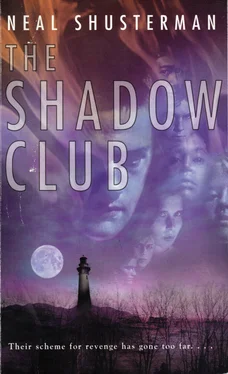
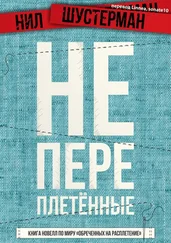
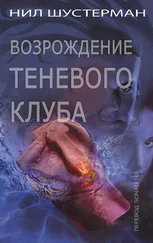
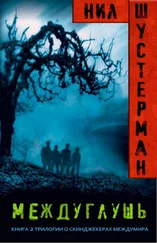
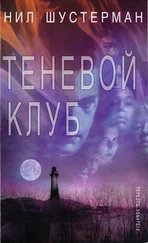
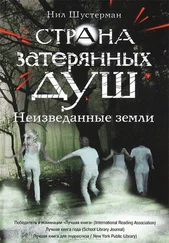
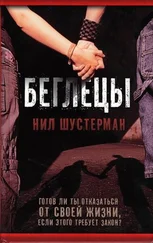

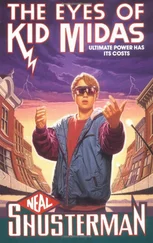
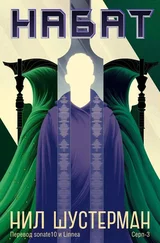
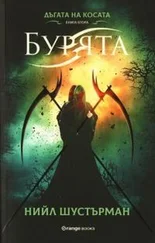
![Нил Шустерман - Жнец [litres]](/books/418707/nil-shusterman-zhnec-litres-thumb.webp)
